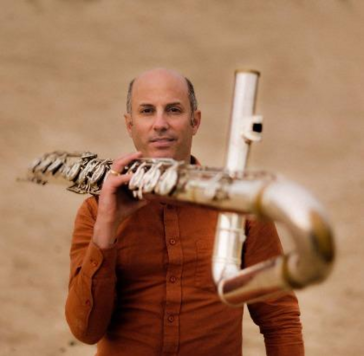Chapter 5 Research and Practice in the Professional Development of School-Based Teacher Educators Enhancing the Value of Teacher Education Research ISBN: 9789004689992
Praktijkonderzoek over integratie van practice based evidence en evidence based practice, nderzoeksresultaten toepassen in de praktijk,verbeteren in en door de praktijk.

Research-based teacher education can be understood in different ways: as a call to understand teacher education institutions as research institutions, as the ambition to educate student teachers to have an inquiring attitude, as the basing of teacher education curricula on the latest research, or as a combination of all three.In this chapter we reflect on a method of connecting research, curriculum development and practice in teacher education, presenting a case study of a conversational community of teacher educators and researchers. The aim of the conversational community was to understand the process of curriculum design in teacher education as an inspiring and practical combination of design research, self-study, collaborative action research and curriculum study by teacher educators. This process was supported by a conversational framework in which curriculum development was understood as an ongoing dialogue between vision, intentions, design and practice in the teacher education curriculum. Using the conversational framework in this single case study of a conversational community, we have tried to connect teacher education research, curriculum development and practice in a meaningful way.

Energy transition is key to achieving a sustainable future. In this transition, an often neglected pillar is raising awareness and educating youth on the benefits, complexities, and urgency of renewable energy supply and energy efficiency. The Master Energy for Society, and particularly the course “Society in Transition”, aims at providing a first overview on the urgency and complexities of the energy transition. However, educating on the energy transition brings challenges: it is a complex topic to understand for students, especially when they have diverse backgrounds. In the last years we have seen a growing interest in the use of gamification approaches in higher institutions. While most practices have been related to digital gaming approaches, there is a new trend: escape rooms. The intended output and proposed innovation is therefore the development and application of an escape room on energy transition to increase knowledge and raise motivation among our students by addressing both hard and soft skills in an innovative and original way. This project is interdisciplinary, multi-disciplinary and transdisciplinary due to the complexity of the topic; it consists of three different stages, including evaluation, and requires the involvement of students and colleagues from the master program. We are confident that this proposed innovation can lead to an improvement, based on relevant literature and previous experiences in other institutions, and has the potential to be successfully implemented in other higher education institutions in The Netherlands.
Designing cities that are socially sustainable has been a significant challenge until today. Lately, European Commission’s research agenda of Industy 5.0 has prioritised a sustainable, human-centric and resilient development over merely pursuing efficiency and productivity in societal transitions. The focus has been on searching for sustainable solutions to societal challenges, engaging part of the design industry. In architecture and urban design, whose common goal is to create a condition for human life, much effort was put into elevating the engineering process of physical space, making it more efficient. However, the natural process of social evolution has not been given priority in urban and architectural research on sustainable design. STEPS stems from the common interest of the project partners in accessible, diverse, and progressive public spaces, which is vital to socially sustainable urban development. The primary challenge lies in how to synthesise the standardised sustainable design techniques with unique social values of public space, propelling a transition from technical sustainability to social sustainability. Although a large number of social-oriented studies in urban design have been published in the academic domain, principles and guidelines that can be applied to practice are large missing. How can we generate operative principles guiding public space analysis and design to explore and achieve the social condition of sustainability, developing transferable ways of utilising research knowledge in design? STEPS will develop a design catalogue with operative principles guiding public space analysis and design. This will help designers apply cross-domain knowledge of social sustainability in practice.
Students in Higher Music Education (HME) are not facilitated to develop both their artistic and academic musical competences. Conservatoires (professional education, or ‘HBO’) traditionally foster the development of musical craftsmanship, while university musicology departments (academic education, or ‘WO’) promote broader perspectives on music’s place in society. All the while, music professionals are increasingly required to combine musical and scholarly knowledge. Indeed, musicianship is more than performance, and musicology more than reflection—a robust musical practice requires people who are versed in both domains. It’s time our education mirrors this blended profession. This proposal entails collaborative projects between a conservatory and a university in two cities where musical performance and musicology equally thrive: Amsterdam (Conservatory and University of Amsterdam) and Utrecht (HKU Utrechts Conservatorium and Utrecht University). Each project will pilot a joint program of study, combining existing modules with newly developed ones. The feasibility of joint degrees will be explored: a combined bachelor’s degree in Amsterdam; and a combined master’s degree in Utrecht. The full innovation process will be translated to a transferable infrastructural model. For 125 students it will fuse praxis-based musical knowledge and skills, practice-led research and academic training. Beyond this, the partners will also use the Comenius funds as a springboard for collaboration between the two cities to enrich their respective BA and MA programs. In the end, the programme will diversify the educational possibilities for students of music in the Netherlands, and thereby increase their professional opportunities in today’s job market.
